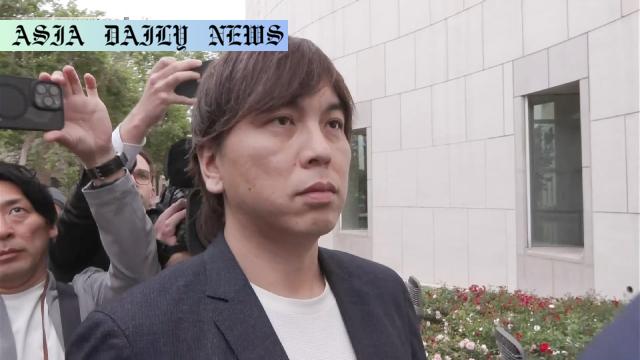Mizuhara was charged with bank fraud and filing a false tax return. He was accused of illegally transferring money from Ohtani’s account.
- Key Point 1: US prosecutors seek a 57-month prison sentence for Mizuhara Ippei for fraud.
- Key Point 2: Mizuhara was charged with banking fraud and filing false tax returns.
- Key Point 3: Allegations include the illegal transfer of $16.9M from Shohei Ohtani’s account.
- Key Point 4: Sentencing is scheduled for February 6.

Background: The Allegations Against Mizuhara
The legal battle surrounding Mizuhara Ippei, former interpreter of Major League Baseball (MLB) icon Ohtani Shohei, has taken a serious turn. US prosecutors have officially requested a 57-month prison sentence for Mizuhara due to allegations of bank fraud and the filing of false tax returns. This case revolves around Mizuhara’s alleged unauthorized transfer of funds from Ohtani’s accounts amounting to a staggering $16.9 million.
Charges and Legal Proceedings
Mizuhara’s charges are not trivial. Bank fraud is a serious federal offense in the United States, punishable by significant terms of imprisonment. Additionally, filing false tax returns compromises the integrity of tax enforcement and is another grave offense. The accusations posit that Mizuhara manipulated financial systems to gain access to funds belonging to Ohtani, betraying the trust placed in him as a close professional confidant.
Prosecution’s Argument
The prosecution’s call for a substantial prison sentence highlights the seriousness of the crimes committed. By requesting both a custodial sentence and $16.9 million in restitution to Ohtani, the prosecutors aim to ensure that justice is served. These punitive measures underscore the financial and emotional damage caused to the baseball star, who had placed immense trust in Mizuhara.
Impact on Ohtani
The misuse of funds not only impacts Ohtani financially but also raises questions about the personal relationships that high-profile athletes cultivate. Ohtani, celebrated both in the United States and Japan for his exemplary performance in the MLB, now must grapple with the betrayal by someone entrusted with his financial well-being. Such incidents cast a spotlight on the importance of heightened security measures for preserving athletes’ finances.
Scheduled Sentencing
The sentencing hearing for Mizuhara is scheduled for February 6, 2024. This event will mark a conclusion to the legal proceedings that have undoubtedly been emotionally taxing for all parties involved. It will also showcase the US justice system’s stance on financial crimes, particularly those involving trusted professional relationships that cross ethical boundaries.
Larger Implications
This case serves as a cautionary tale for both high-profile individuals and those entrusted with managing their affairs. Athletes and celebrities often rely on intermediaries to maintain their finances, but this trust must be accompanied by diligent monitoring and oversight. Without such preventive measures, individuals may find themselves vulnerable to breaches of trust and financial misconduct.
Conclusion
As the legal process unfolds, the Mizuhara case underscores the importance of accountability, transparency, and the rule of law. The harsh penalties sought by prosecutors are a testament to the gravity of the crime, sending a clear message that financial impropriety and breaches of trust are unacceptable, regardless of an individual’s professional status or relationship with the victim.



Commentary
A Betrayal of Trust
The charges against Mizuhara Ippei paint a distressing picture of betrayal. As someone entrusted with the financial and personal affairs of one of the most celebrated names in baseball, Mizuhara’s actions are both shocking and heartbreaking. This situation demonstrates the fragility of trust, especially in the complex world of high-profile sports professionals.
Lessons for Public Figures
This case serves as a sobering reminder for all public figures to exercise caution when delegating financial responsibilities. While trust is crucial in professional relationships, it must be balanced with safeguards and periodic reviews to prevent such issues from arising. Ohtani’s plight is a powerful cautionary tale for athletes and professionals across industries.
Justice and Accountability
The proposed 57-month sentence and restitution amount of $16.9 million underscore the need for justice and accountability. By seeking such measures, the prosecutors emphasize the seriousness of financial misconduct and aim to deter others from committing similar acts. This case sends a clear message: financial crimes, particularly those involving breaches of trust, will be met with severe consequences.
Looking Ahead
As Mizuhara faces his sentencing, this case will undoubtedly serve as an inflection point for both Ohtani and the broader sports industry. It is an opportunity for athletes and public figures to reevaluate their financial management practices and reinforce safety nets to protect their wealth and well-being. While the resolution of this case will bring a sense of closure for Ohtani, it also highlights the need for systemic change to prevent such incidents in the future.